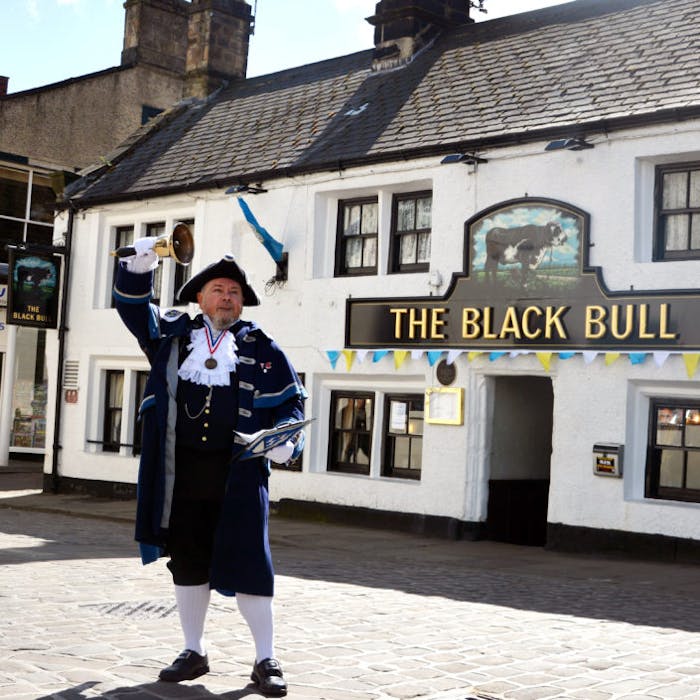
Town Criers - a British tradition temporarily silenced
Before the age of newspapers, radio and television, townsfolk relied on a resident town crier to bring them information and keep them up to date on bylaws and market days. Town criers also patrolled the streets after dark, arresting miscreants and taking them to the stocks for punishment, and ensuring fires were damped down before night. Nowadays, they perform civic and ceremonial duties.
The town crier or bellman can be traced back at least to medieval times: two bellmen appear in the Bayeaux Tapestry, which depicts the 1066 Battle of Hastings. For the first time this year, their annual competition has been revised to replace loud pronouncements with written declarations because of the pandemic restrictions.
In medieval England the town crier would begin announcements with a 'oyez oyez, oyez' cry, meaning 'hear ye'. Suitably dressed, he would ring a large hand bell to attract attention, before informing the townspeople of the latest news, proclamations and other information. It was an important role, because there was a high level of illiteracy, and people were dependent on the figure for news. The cry would end with the words, ‘God save the King’ or ‘God save the Queen’.
Having read out his message, the town crier would then attach it to the door post of the local inn, so ‘posting a notice’, the reason why newspapers are often called ‘The Post’.
Town criers were protected by law. Anything they did was done in the name of the monarch, therefore to harm a town crier was an act of treason. This was a necessary safeguard as the town criers often had to announce unwelcome news such as tax increases. The key requirements of the role were the ability to read, a loud voice and an air of authority. Bellmen would be paid for each proclamation they made.
Town Criers were largely phased out in the early 20th Century – in part because of the growth of local newspapers and literacy rates increasing, and the position passed into local folklore and a few who continued the tradition. During the 1990's, more cities and towns reinstated the post purely for ceremonial purposes. Chester is the one town in Britain to retain the tradition of regular Town Crier proclamations.
Two organisations exist to uphold, promote and preserve the role of the Town Crier. The Ancient and Honourable Guild of Town Criers was founded in 1978 – with 138 Town Criers currently registered in England and Wales. The Loyal Company of Town Criers was formed in 1993. A collective of practitioners who aim to ‘further the art and skill of town crying’. Both hold a range of competitions throughout the year. Contenders are judged on ‘volume, diction, clarity and inflection’ .
The 2021 British Town Crier Championships, held by the Loyal Company of Town Criers, ironically had to take place in silence, with contenders judged on their 140-word written messages alone. This was because of the Covid lockdown. The suggestion that the competition be judged with video recordings was rejected, on the grounds that 'not everyone is able to record a good-quality video'.
Further reading
Links to external websites are not maintained by Bite Sized Britain. They are provided to give users access to additional information. Bite Sized Britain is not responsible for the content of these external websites.
